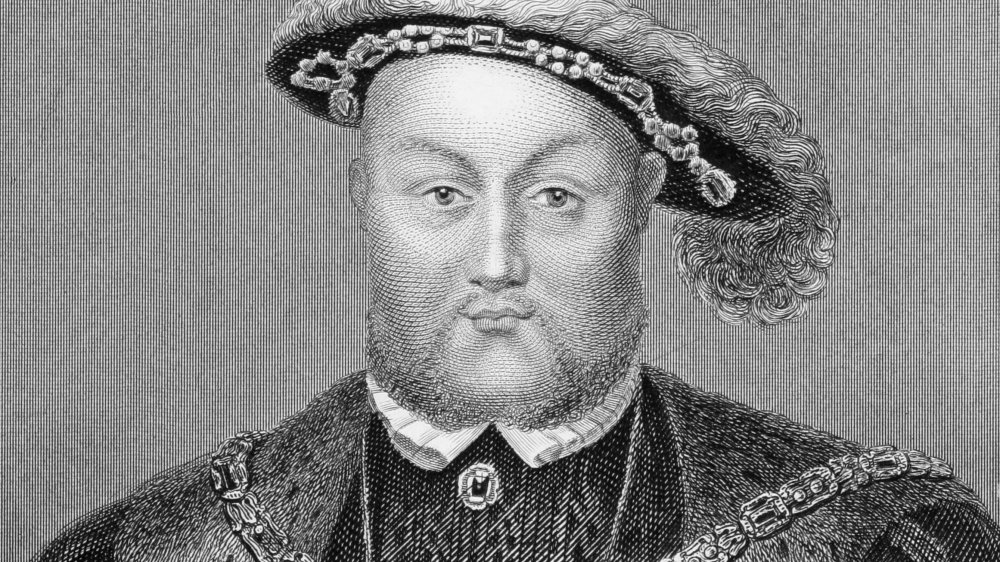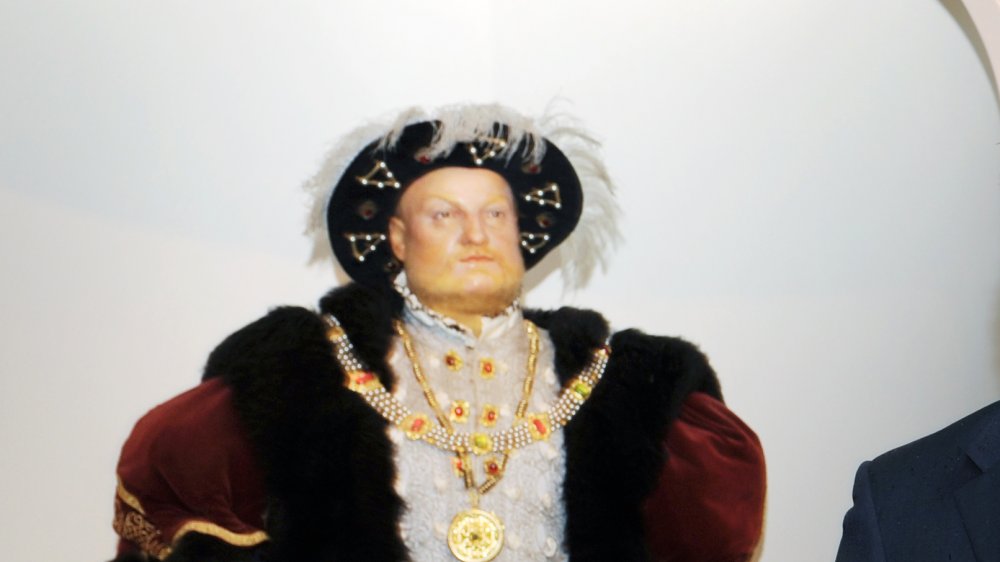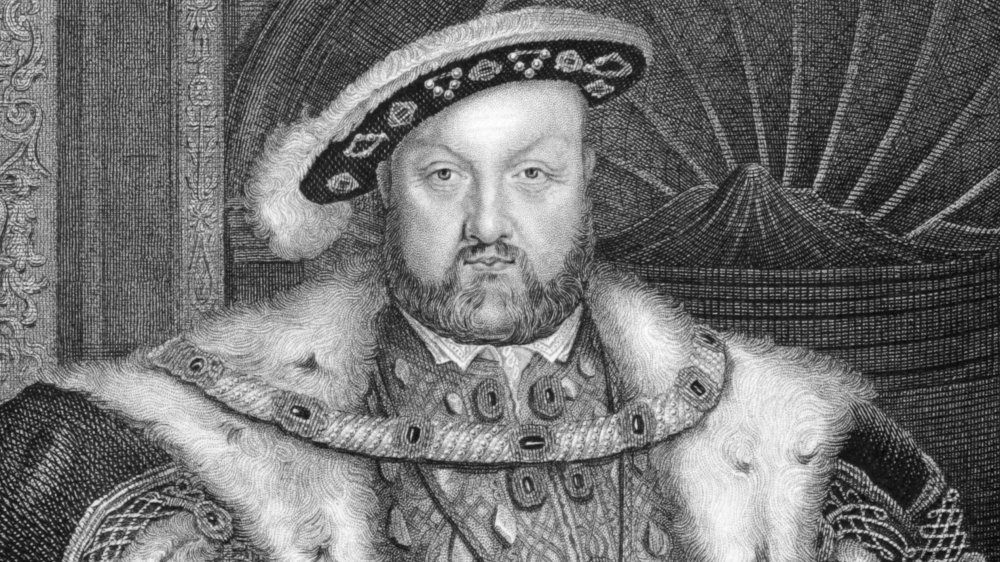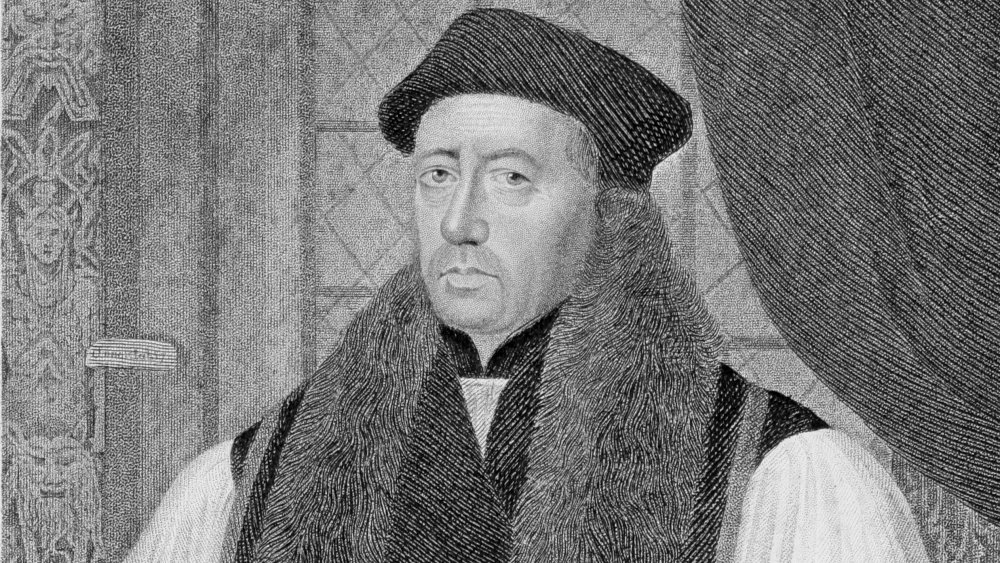How Henry VIII Spent His Final Hours Before Death
England's King Henry VIII, or Henry Tudor had six wives. Was he cutting edge, or just ADD? People think they know Henry. Usually he's pictured all puffy and jowly, but what people forget is that he didn't start that way. Given the rate of infant mortality in the 16th century, it's a wonder anybody, royal or not, survived to adulthood. Adulthood itself wasn't exactly a long slow glide into the land of "Get off my lawn," either, since, on average, you were probably going to shuffle off this mortal coil before you even hit 40.
Henry, however, got the brass ring, born royal and healthy. He's usually described in his youth as handsome and athletic. He managed to rule England for some 38 years before wine, women, pork, and physical activity took their toll. Biography attributes the turning point in his deteriorating health to a leg injury he suffered while jousting. His horse crushed him, leaving him unconscious for two hours, and far more sedentary than he used to be. His appetite, per The Tudor Society, had led him to consume 5000 calories daily, much of it consisting of meat and red wine. His circulation was terrible, especially in the legs, which deteriorated into two weeping varicose ham hocks. He would end up having to be carried around in a chair, and instead of hunting down deer, he would have them herded towards him so he muster a shot.
Henry VIII's slow, porky slide into oblivion
As Henry's weight increased, his health further deteriorated, and nothing seemed to help. Not even the most up-to-date medical procedures — you know, like the "letting of his blood in accordance with the waxing and waning of the moon," that kind of thing — helped. It's not like they didn't try, for goodness' sake.
Then came January 27, 1547. His day of reckoning. Everyone knew he was dying, but no one was willing to say the words out loud; it was considered treasonous to predict the death of a king. Nevertheless, it was clear the king was nearing death, and so Sir Anthony Denny had the unenviable task of suggesting that Henry might want to examine his royal conscience and make his peace with God. Henry spent time with his confessor and received Holy Communion.
Henry proclaimed that he believed that "Christ in all His mercy would 'pardon me from all my sins, yea, though they were greater than can be." As indeed they might have been. After all, wives and royal advisors weren't the only people Henry had executed during his reign. According to On the Tudor Trail, "estimates do vary widely," but some historians suggest as many as 72,000 people died under Henry's order during his nearly 40 years on the throne.
Henry VIII the dust
Despite this rather large death toll, the evidence suggests that Henry Tudor, known to history as England's King Henry VIII, believed in God. Before they had their famous falling-out, the pope had declared Henry "Defender of the Faith," for the monarch's writings in opposition to Martin Luther. It should come as no surprise, then, that the afterlife, and what it might hold, took up much of Henry's waning attention as he slowly slipped from this life to eternal life.
The chronicles from the time spun his final moments as befitting a king, but bear in mind there were also examinations of Henry's sputum and stools going on. Hopefully in a different room. As power brokers "hovered solicitously in the background," according to the History Press, perhaps hoping to get name-checked in his yet-to-be finalized will, Henry was overcome by a "final paralysing weakness." Assistants would be applying various potions and poultices, generally fussing about. History Press describes a scent of "grey amber and musk to smother the stench of physical decay," and a "shadowy gloom created by the window tapestries, which were tightly drawn to bar the invasive damp, along with "the stifling fug generated by the great wood fire that was fed continually to eliminate all 'evil vapours'."
'Call Dr. Cranmer'
Eventually, the "fug" overcame him. He was 55. At least one scholar attributes Henry's one-way ticket to the afterlife to renal and liver failure. It was a slow slide, brought on by his unhealthy lifestyle, and not a pretty one. His last words were to summon Archbishop Thomas Cranmer to his bedside, but Henry was unconscious by the time the churchman arrived. Cranmer "begged Henry to give him a sign that he trusted Christ for salvation and, in response, he (Cranmer) felt the grip on his hand tighten slightly." Two hours later, in the wee hours of January 28, Henry breathed his last.



